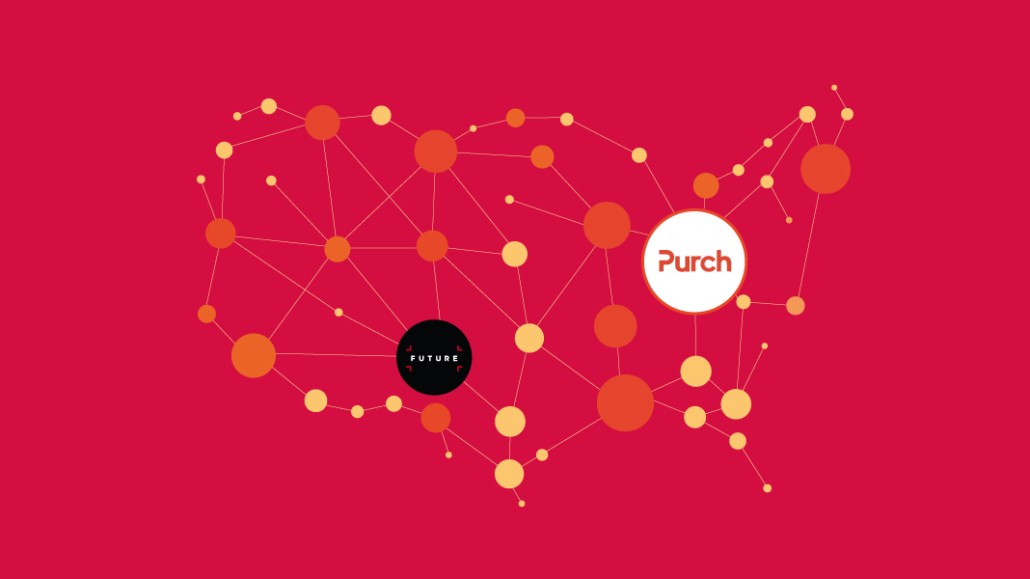Secure your place at the Digiday Media Buying Summit in Nashville, March 2-4

This week U.K. specialist publisher Future announced the purchase of technology platform and publisher Purch for $132.5 million (£101 million), marking Future’s fifth, and largest, acquisition so far.
The deal means Future, which publishes titles like TechRadar, PC Gamer and T3, will beef up its consumer tech titles by adding Purch’s sites Tom’s Guide, Tom’s Hardware and Top Ten Reviews. Future makes money through display advertising, e-commerce and affiliate revenue and this added scale aims to curry favor with U.S. advertisers in the consumer tech space.
“We create content services that fit a need and then we monetize that need,” said Aaron Asadi, chief operations officer at Future. “I don’t see any difference in doing that between the U.S. and the U.K. This isn’t about territory, it’s about audience-first thinking.”
A U.K. headquartered company, Future has had a presence in the U.S. for nearly two decades and around 200 people in two New York offices. The majority of its audience across its portfolio comes from the U.S., according to Asadi. For TechRadar, 32 percent of its audience — 9 million unique monthly users — comes from the U.S., while 14 percent from the U.K.
Despite this audience split, the company generates more profit from the U.K., according to analysts. “Future’s revenue per U.S. user has, to date, been below par, relative to the U.K., so there should be some upside monetization opportunity now,” said independent media analyst, Alex DeGroote.
He went on to add that according to the publisher’s financial report, Future’s profits globally have been around £15 million ($20 million), roughly £10 million ($13 million) of which are from the U.K. The addition of Purch will mean the majority of profits will be coming from the U.S.
“In the media and tech sector, the cutting-edge innovation takes place in the U.S., it’s not straightforward to acquire and integrate them,” said DeGroote. “This is binary. It could make or break Future if they have bitten off more than they can chew.”
With acquisitions come people and technology duplications. Both publishers have robust tech platforms. Purch licenses its ad tech stack, including ad tech platform RAMP, and PIP, its customer relationship management platform. Future has invested in its e-commerce platform Hawk, and has been in the process of integrating all sites to the platform in recent months. How the two technologies mesh could cause risks, according to industry experts.
“It would be foolish to enter an acquisition of this size with a prejudiced mindset of what tech works best and what doesn’t, our view is to test, test, and test again,” said Asadi. “This about revenue growth, it’s not an acquisition to find synergistic benefits, but to unlock the obvious revenue opportunities.”
According to analysts who were on the investment call, Future is offering new shares at a heavy discount to the current market share price, indicating there is some resistance in the stock market to the acquisition. Partly, insiders say because U.K. publishers have historically done poorly in the U.S. and Future’s share prices have ballooned in the last year, making it tricky to value it.
“Future is one of the best-performing publicly quoted media companies in the U.K.,” said DeGroote. “Several years ago it was almost off the radar, it’s a real acquisition and restructuring story.”
More in Media

Media Briefing: Turning scraped content into paid assets — Amazon and Microsoft build AI marketplaces
Amazon plans an AI content marketplace to join Microsoft’s efforts and pay publishers — but it relies on AI com stop scraping for free.

Overheard at the Digiday AI Marketing Strategies event
Marketers, brands, and tech companies chat in-person at Digiday’s AI Marketing Strategies event about internal friction, how best to use AI tools, and more.

Digiday+ Research: Dow Jones, Business Insider and other publishers on AI-driven search
This report explores how publishers are navigating search as AI reshapes how people access information and how publishers monetize content.








